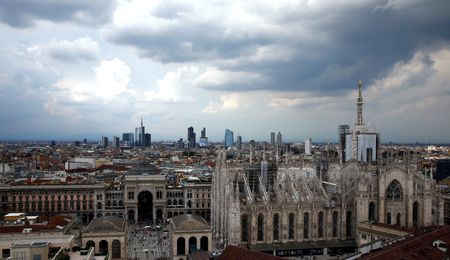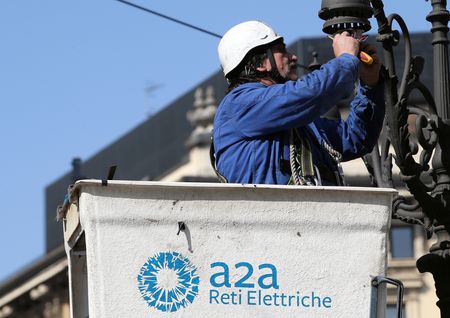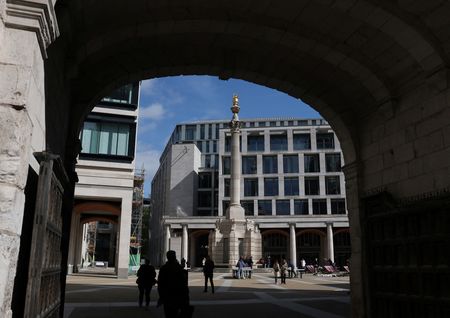By Giuseppe Fonte and Gavin Jones
ROME (Reuters) -Italian Prime Minister Giorgia Meloni said on Friday she had no concerns that tax increases on banks and insurance firms announced in the government’s 2026 budget would hurt the economy or trigger a conflict with the financial sector.
Banks and insurers face an 11 billion euro ($12.84 billion) tax increase as part of government budget plans for 2026-2028, including a two percentage point increase in the rate of one of the main corporate levies, IRAP.
“I do not fear a backlash,” Meloni told reporters after the cabinet approved the budget, denying any punitive intent towards the country’s lenders which have made handsome profits in recent years.
The measures help fund expansionary tax cuts and spending hikes worth 18.7 billion euros in 2026 and a similar amount in each of the following two years. The government will mainly focus on supporting middle-income earners and investments by industrial firms.
RULING COALITION SETTLES DIFFERENCES ON TAXING BANKS
The budget targets next year’s fiscal deficit at 2.8% of gross domestic product from 3% in 2025, as the government aims to consolidate its public finances despite weak economic growth.
The ruling parties have been at odds over how to tap the financial sector for resources, but settled their differences at a meeting late on Thursday.
State coffers will reap roughly 4.4 billion euros from the financial sector next year.
“This is no expropriation. Instead of 50 billion euros in profits, banks will only make 45 billion,” Deputy Prime Minister Matteo Salvini said earlier on Friday. He leads the co-ruling League party which has pushed strongly for higher taxation on lenders.
Rome will tighten the way financial firms have been able to use past losses to lower their tax bills, and oblige them to spread over a greater number of years provisions for impaired loans which get deducted from income.
GIORGETTI SAYS BANKS NOT HAPPY BUT MEASURES ‘AFFORDABLE’
The IRAP tax rate will rise from next year to 6.65% for banks and to 7.90% for insurance companies, from 4.65 and 5.90% respectively.
“These are all affordable measures. No one of course is happy to pay taxes, nobody I think has uncorked champagne,” said Economy Minister Giancarlo Giorgetti, also from the League.
Italy will partially offset the impact of the tax increases by refunding to the banks roughly 1.5 billion euros of IRAP that they paid on dividends from foreign subsidiaries, following a European Union ruling in August.
Giorgetti also confirmed a cut to 27.5% from the current 40% in the rate of a tax banks must pay in order to unlock some 6.2 billion euros in reserves which they had set aside as part of an opt-out clause from a contested 2023 windfall tax.
If banks distribute these reserves, with a 26% tax rate on dividends the overall tax take could be roughly 3 billion euros, sources have previously said.
Critics have accused the government of sending conflicting signals, first blaming the banks for huge profits passed on to shareholders, and then encouraging them to pay out even more dividends.
Among other funding sources for the budget, the government plans to hike to 300,000 euros from 200,000 euros a “flat tax” applied on income earned abroad by wealthy individuals who transfer their tax residence to Italy, two official said.
($1 = 0.8569 euros)
(Additional reporting by Valentina Za in Milan; Editing by Jamie Freed)











